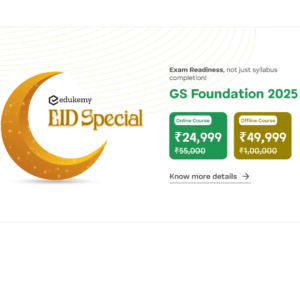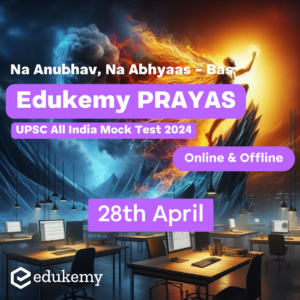
The UPSC (Union Public Service Commission) Political Science and International Relations (PSIR) optional syllabus is a comprehensive and intellectually stimulating curriculum designed for candidates aspiring to excel in the Civil Services Examination. The PSIR optional paper aims to evaluate candidates’ understanding of political theories, international relations, and contemporary issues. The syllabus encompasses a wide range of topics, including political theory and thought, comparative politics and governance, Indian government and politics, and international relations. Candidates are expected to delve into the intricacies of political philosophies, analyze political systems, and demonstrate a nuanced understanding of global affairs. The PSIR optional syllabus is known for its interdisciplinary approach, requiring aspirants to connect theoretical concepts with real-world events. This option not only equips candidates with a profound knowledge of political structures but also enhances their analytical and interpretative skills. Overall, the UPSC PSIR optional syllabus provides a platform for candidates to develop a holistic perspective on political and international issues, enabling them to contribute effectively as future civil servants.
Benefits of choosing Political Science and International Relations (PSIR) Optional
Choosing PSIR as an optional subject can offer several advantages to an aspiring bureaucrat. In this article – UPSC PSIR Optional Syllabus, we will discuss why PSIR is a suitable option for both Prelims and Mains, how it can help in building current affairs, and provide tips from the toppers.
Why PSIR:
Understanding politics: UPSC PSIR optional syllabus helps in gaining knowledge of the political environment, which is crucial for a bureaucrat to make informed decisions.
- General concepts:
The concepts in PSIR are understandable for people from diverse backgrounds.
- Overlapping syllabus:
Approximately 65% of the General Studies syllabus is covered by PSIR, which makes it a suitable option to prepare simultaneously for both Prelims and Mains.
- Building current affairs:
Preparing for PSIR can help in building current affairs.
- Better decision-making:
Knowledge of PSIR can help a bureaucrat in making better decisions.
- Interrelated concepts:
Most concepts in PSIR are interrelated and can be easily understood.
- Successful results:
PSIR has worked for many toppers and helped them secure top ranks.
Answer Writing Tips:
- Current affairs questions:
Provide a brief description of the event, explain it, mention arguments for and against the issue with the names of the people who quoted them, analyze the situation, suggest possible solutions or give an opinion, and mention scholars.
- Conceptual questions:
Cite the founder of the idea, explain the concept using diagrams, give criticism and support from various scholars, and mention the implication of the concept in the contemporary world.
- One-sided questions:
Follow the method mentioned above unless the question asks for a one-sided answer. Practice PYPs.
- Paper 2 suggestions:
Depict the connection this issue had with various other issues, give a stance of scholars on this issue or their quotes, analyze, and then conclude.
Tips from Toppers on UPSC PSIR Optional:
- Attempt all questions and write three average answers instead of one excellent answer.
- Practice writing with strict time and get suggestions from experts.
- Read everything from the syllabus and revise at least 4-5 times.
- Use minimum sources and maximize answer writing practice.
- Emphasize Indian political thought and understand how to interlink concepts.
- Be ready with factual data to complement your claims and keep up with current affairs.
- Prepare for Prelims, Mains, and Interviews simultaneously.
- Decide which questions to attempt once you get the paper and cite the names of about 3 scholars for each question.
- Write like you are writing an editorial and don’t use bullet points.
- Change handwriting to ensure the size is good enough to fill all the answer sheets.
- Inculcate web-based thinking and prepare short notes to cover everything before the examination.
- Make answers India-centric and mention criticism whenever possible.
- Follow 4 Cs- Compare, Criticize, Contemporary, and Conclude and check after every question.
- Develop a unique strategy that suits you best through trial and error.
- Finally, stay positive and work hard to achieve your dreams.
The following table gives the names and ranks of a few toppers with political science optional:
| Name | Year | Rank |
| Gunjan Dwivedi | 2018 | 9 |
| Ankit Pannu | 2017 | 31 |
| Abhishek Sharma | 2017 | 69 |
| Keerthi Kiran Pujar | 2017 | 115 |
| Anand Vardhan | 2016 | 7 |
| Sidharth B | 2016 | 15 |
| Mirant Parikh | 2016 | 67 |
| K Dinesh Kumar | 2016 | 6 |
| Tina Dabi | 2015 | 1 |
| Karn Satyarthi | 2015 | 9 |
| Umesh NSK | 2014 | 77 |
Booklist:
Political Science Books for UPSC – Optional Paper – I
| Book Name | Publisher/Author Name |
| An Introduction To Constitution | D.D. Basu |
| An Introduction To Political Theory | O.P. Gauba |
| Fifty Major Political Thinkers | Ian Adams And R W Dyson |
| A History Of Political Thought: Plato To Marx | Subrata Mukherjee And Sushila Ramaswamy |
| An Oxford Companion To Politics In India | Niraja Gopal Jayal And Pratap Bhanu Mehta |
| Foundations Of Indian Political Thought | V. R. Mehta |
| A New Look At Modern Indian History | B.L Grover And Alka Mehta |
| India’s Struggle For Independence | Bipin Chandra |
| Indian Government And Politics | B L Fadia |
| Western Political Thought: From Socrates to the age of Ideology | Brian R Nelson |
| Modern Indian Political Thought: Text and Context | Bidyut Chakrabarty and Rajendra Kumar Pandey |
Political Science Books for UPSC – Optional Paper – II
| Book Name | Publisher/Author Name |
| India’s Foreign Policy | V P Dutt |
| International Organizations | Spectrum Books Publication |
| International Relations | V N Khanna |
| Challenge And Strategy: Rethinking India’s Foreign Policy | Rajiv Sikri |
| Does The Elephant Dance?: Contemporary Indian Foreign Policy | David M. Malone |
| Global Politics | Andrew Heywood |
| MPS-004 Comparative Politics: Issues And Trends | Expert Panel Of GPH |
| The Globalization of World Politics: An Introduction to International Relations | John Baylis, Steve Smith and Patricia Owens |
Frequently Asked Questions (FAQs)
1. FAQ: What is the scope of the UPSC Political Science and International Relations (PSIR) optional syllabus?
Answer: The UPSC PSIR optional syllabus is comprehensive and covers a wide range of topics related to political science and international relations. It includes political theory, comparative politics, Indian government and politics, international relations, and political ideologies. The syllabus is designed to provide candidates with a thorough understanding of political systems, governance structures, and global relations.
2. FAQ: How can I effectively prepare for the PSIR optional paper in the UPSC exam?
Answer: Effective preparation for the UPSC PSIR optional paper involves a combination of in-depth reading, conceptual clarity, and answer-writing practice. Candidates should focus on understanding key concepts, theories, and their practical applications. Regularly practicing answer writing is crucial to develop analytical and articulate writing skills. Additionally, staying updated with current affairs, especially in the context of international relations, is essential for scoring well in this optional subject.
3. FAQ: Does the UPSC PSIR optional syllabus include contemporary issues and global affairs?
Answer: Yes, the UPSC PSIR optional syllabus incorporates contemporary issues and global affairs. Candidates are expected to analyze and apply theoretical concepts to current events. Topics such as international relations, global governance, and emerging geopolitical trends are integral to the syllabus. Keeping abreast of recent developments and their implications is vital for a comprehensive understanding of the subject.
4. FAQ: How does the PSIR optional paper contribute to the overall UPSC mains examination?
Answer: The PSIR optional paper carries 500 marks in the UPSC mains examination, consisting of two papers (Paper I and Paper II). The optional paper plays a significant role in determining a candidate’s ranking. A well-prepared and articulated PSIR optional paper can substantially boost the overall score, making it a crucial aspect of a candidate’s success in the UPSC examination.
5. FAQ: Can I choose the UPSC PSIR optional paper without a background in political science or international relations?
Answer: While a background in political science or international relations can be advantageous, it is not mandatory. Many successful candidates with diverse educational backgrounds have excelled in the UPSC PSIR optional paper. What matters most is a candidate’s dedication to understanding the subject, a systematic study plan, and consistent practice. Aspirants should focus on building a strong foundation in the key concepts outlined in the syllabus to perform well in the examination.
In case you still have your doubts, contact us on 9811333901.
For UPSC Prelims Resources, Click here
For Daily Updates and Study Material:
Join our Telegram Channel – Edukemy for IAS
- 1. Learn through Videos – here
- 2. Be Exam Ready by Practicing Daily MCQs – here
- 3. Daily Newsletter – Get all your Current Affairs Covered – here
- 4. Mains Answer Writing Practice – here


